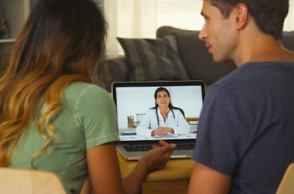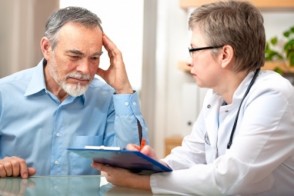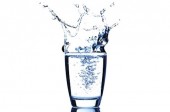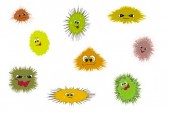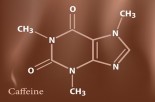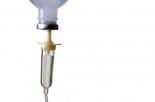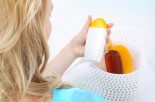Canceled Clients (4762)
Children categories

Train Your Body (438)
The show for fitness buffs or beginners. Expert guest from the American College of Sports Medicine (ACSM) discuss all areas of fitness, nutrition, athletics and sports medicine.
View items...
Staying Well (382)
RadioMD’s “talking” Health A-Z hosted by senior health correspondent, Melanie Cole, MS. Melanie interviews experts in the world of health, wellness, fitness and medicine.
View items...
Healthy Talk w/ Dr. Michael Smith (698)
Integrative physician, Michael A. Smith, MD is committed to providing listeners with the most current health information available.
View items...
Naturally Savvy (899)
Registered Holistic Nutritionist, Andrea Donsky and health expert Lisa Davis discuss their passion for living a natural, healthy lifestyle.
View items...
Eat Right Radio (48)
EatRight Radio, with experts from the Academy of Nutrition and Dietetics, discusses food and nutrition topics, healthy weight, allergies and health conditions, healthy aging, food safety and so much more. Give us 10-minutes and we'll give you the important information and expert advice from registered dietitian nutritionists to help you eat right, feel better, and live a healthier life. Hosted by Melanie Cole, MS.
View items...
Sharecare Radio (235)
Sharecare Radio, hosted by Sharecare’s own Dr. Darria Long Gillespie, SVP of Clinical Strategy at Sharecare, will appear live every Tuesday from 12 to 1 p.m. EST on RadioMD. Dr. Darria will break down the top health news of the week, pull in experts from around the country on a wide array of health topics and answer listeners’ live questions on all things health.
View items...
Wellness for Life (455)
On Wellness For Life Radio you will learn practical, easy-to implement tips to improve your life and start feeling better — the natural way.
View items...
The Wizard of Eyes (163)
Dr. Robert Abel Jr. talks about many of the important and unrecognized parts of our visual system which we so often take for granted. The show covers the usual common ocular disorders with an East/West approach to both prevention and therapy. The eye-brain connection is presented with information about memory retention, Alzheimer's, the myopia epidemic, and many more subjects. Dr. Abel discusses how the eye and vision are connected with remote parts of the body including your gut flora, musculoskeletal system, blood pressure, drugs and lifestyle. practical and simple health tips.
View items...
Code Delicious with Dr. Mike (135)
Code Delicious with Dr. Mike breaks all the rules. Unabashedly confronting the questions, concerns and conundrums that continually confuse both public and experts alike; Dr. Mike takes us on a tasty trip of inquiry.
View items...
CLEAN Food Network (98)
This show is a call to action for all the clean eating revolutionaries that care about their health and how and what they eat. Non-GMO, natural, organic . . . food the way nature intended. The clean food movement is huge and is growing exponentially. This companion program talks to experts in food preparation, healthcare, celebrities, and even those companies that care enough to provide the best, wholesome, organic foods and groceries.
View items...
Talk Healthy Today (213)
Looking to create your best self? Whether it’s good-for-you lifestyle hacks, smarter ways to supplement, or tasty tips to fuel optimal health, Talk Healthy Today brings you the latest research, tools, and common sense tips you need to get and stay healthy... starting today!
View items...
Be a Doer (17)
Be A Doer features master coach and TV personality John Abdo as he shares health and fitness tips aimed at getting you in shape – and keeping you there!
View items...The Power of Probiotics (3)
Probiotics is a major global industry. But like any industry, it had to have a beginning. Natasha Trenev is the daughter of an Eastern European family where the manufacturing of yogurt was a generational business. When Natasha emigrated to the US in the 1960’s, she brought with her 750 years of family experience with probiotics – and introduced the science (and the term itself) to her new country. Today, Natasha’s California-based Natren, Inc. is the recognized pioneer in probiotics and company founder Natasha Trenev has earned recognition as the Mother of Probiotics. Her more than 50 years of work in natural health is at the core of the unparalleled success of her company – and you will benefit from her depth of expertise in each and every episode of THE POWER OF PROBIOTICS.
Probiotics are live microrganisms that are commonly referred to as ‘friendly,’ ‘good’ or ‘healthy’ bacteria that function to help maintain the natural balance of organisms in the intestine. Throughout Natasha’s extensive work in the field of probiotics, she has always been amazed by how nature provides the very ‘good’ bacteria that can help overpower ‘bad’ bacteria to keep our digestive tracts functioning at peak performance. Properly cultivating friendly bacteria and ensuring their potency is at the core of the Natren Process. Natren is cited – by retailers, by the medical community and by consumers – as the best probiotic supplement available. Only Natren carefully chooses its probiotic cultures, formulates and manufactures its industry standard probiotics in its own plant and utilizes a specially-formulated oil matrix to protect probiotics bacteria to survive until they reach their destination in the upper small intestine. This is why only Natren is the most trusted probiotic supplement on the market. Truly, where other probiotic supplements promise – Natren Delivers.
To learn more about how probiotics can benefit your health, we are proud to introduce you to THE POWER OF PROBIOTICS with The Mother of Probiotics, Natasha Trenev.

Your Brain Health (24)
Noted Los Angeles-based neuroscientist and media personality Dr. Kristen Willeumier launches Your Brain Health with Dr. Kristen Willeumier, a podcast series that explores the latest news and information in the burgeoning science of brain health.
View items...Additional Info
- Segment Number 4
- Audio File health_radio/1524ml3d.mp3
- Featured Speaker Robert M. Wachter, MD
- Book Title The Digital Doctor: Hope, Hype, and Harm at the Dawn of Medicine’s Computer Age
- Guest Website Watcher's World
-
Guest Bio
 Robert M. Wachter, M.D., is Professor and Associate Chairman of the Department of Medicine at the University of California, San Francisco and is Chief of the Division of Hospital Medicine UCSF Medical Center. He is the author of The Digital Doctor: Hope, Hype, and Harm at the Dawn of Medicine's Computer Age.
Robert M. Wachter, M.D., is Professor and Associate Chairman of the Department of Medicine at the University of California, San Francisco and is Chief of the Division of Hospital Medicine UCSF Medical Center. He is the author of The Digital Doctor: Hope, Hype, and Harm at the Dawn of Medicine's Computer Age.
- Length (mins) 10
- Waiver Received No
- Host Melanie Cole, MS
Additional Info
- Segment Number 3
- Audio File health_radio/1524ml3c.mp3
- Featured Speaker Dudley Danoff, MD, FACS
- Book Title Penis Power: The Ultimate Guide to Male Sexual Health
- Guest Website Tower Urology
-
Guest Bio
 An author and requested guest on national radio and television shows, Dr. Dudley Danoff is a graduate of Princeton University and Yale University Medical School.
An author and requested guest on national radio and television shows, Dr. Dudley Danoff is a graduate of Princeton University and Yale University Medical School.
He has taught on the clinical faculty of the UCLA School of Medicine for more than 25 years and is the founder and president of the prestigious Cedars-Sinai Tower Urology Medical Group in Los Angeles. Urologist to many Hollywood stars and the recipient of national and international honors, Dr. Danoff is also senior attending urologist at the Saban Los Angeles Free Clinic. - Length (mins) 10
- Waiver Received Yes
- Host Melanie Cole, MS
Additional Info
- Segment Number 5
- Audio File healthy_talk/1524ht3e.mp3
- Featured Speaker Mike Smith, MD
- Organization Life Extension
- Guest Website Healthy Talk MD
-
Transcription
RadioMD Presents: Healthy Talk | Original Air Date: June 10, 2015
Host: Michael Smith, MD
RadioMD. It's time to ask Dr. Mike. Do you have a question about your health? Dr. Mike can answer your questions. Just email AskDrMikeSmith@RadioMD.com or call now 877-711-5211. The lines are open.
DR MIKE: I have three questions now from Bart Taylor. He is a long time listener of my show and he has sent me other questions before. He always sends me challenging, thoughtful questions. Smart guy. Let me start first with really a reply or response to a past show that I had where one of my guests was talking about chronic pain. I want to say it was Dr. Twogood.
He has a book out: Chronic Pain Gone in 90 Days and he links a lot of chronic pain to inflammation and, of course, inflammation to inflammatory substances that we are putting into our system. He talked about things like MSG, toxins, etc. One of the things he talked about is chocolate.
He made the connection between chocolate, when it's processed. Obviously, we use milk to make milk chocolate and there's a protein in milk called casein that is big time pro-inflammatory. So, in his own practice, when he removes casein – milk products like chocolate--out of his patient's diet – they feel better. He's had some pretty dramatic examples of that. That's his experience.
So, Bart says, "Your recent guest who advised not eating chocolate because he thought the casein in the chocolate was inflammatory to the joints, the problem with this is that the plants don't make casein" – meaning the cocoa bean. Plants don't make casein. "If there is casein in chocolate it's because the manufacturer used milk to process it. Most dark chocolates, such as 85% cocoa, is not made with milk products and as such has no casein in it."
Correct, but when you just look at chocolate, cocoa bean, there's no casein. It's the processing of it to make the chocolate bar. I'm going to defend Dr. Twogood here. That's what he is talking about. He's not talking about 85% cocoa. He's talking about opening up a wrapper, a chocolate candy bar--whether it's milk chocolate or dark chocolate, doesn't matter--and eating it.
That has been processed with milk and that has the casein in it. I'm pretty sure that's what he was talking about. That was my take on it. When he was talking about that, I didn't challenge him on that because I just assumed that he was talking about Snickers. Just don't eat that chocolate Hershey Kisses. Should I stop branding other companies? Bart, I'm pretty sure that's what he meant. The real issue with Dr. Twogood is milk products and, in particular, one protein in there called casein.
Next question from Bart. This is a really good one.
"What is the point of taking the same probiotic every day? Bacteria seem to multiply so fast that I doubt that if someone swallows a probiotic one day that there's none of the probiotic bacteria in the colon the next day after consumption. I could maybe see taking probiotics once a week. What do you think about cycling probiotics throughout the week?"
Great question, Bart. This is a question that we've actually looked into at Life Extension. How often do we really need to take probiotics? It is true that bacteria divide very quickly. They go through multiple generations in one day.
So, that's true but that's in a perfect environment. That's in an environment in a petri dish. That's in a wound. You get an anaerobic type of bacteria that just festers in the wound and that wound is just a perfect environment for that kind of growth. The problem is the gut.
Although, in a perfect world, the gut should be a perfect environment for that kind of growth and sustained growth of healthy bacteria, but given how we live today and given the environment that we live in, that's not the case. The average American gastrointestinal system is no longer that perfect growth medium for those healthy gut bacteria.
It turns out that we have better mediums for the bad guys. For the good guys, it's not really that perfect growth medium. When you take a probiotic pill, in theory, it should release all those live bacteria; they should seed it; they should divide; they should be happy. Everybody is doing great and maybe you could cycle your probiotic pill.
That's not what the case is in the average person. We take the probiotic pill and, by the way, Bart, no matter how well that probiotic pill is manufactured you aren't going to release all of them. There is no way that probiotic pill is 100% live bacteria even when you protect them and provide the prebiotic.
That's just not the case. Right there, you are losing some just by taking the probiotic. Then it gets out there and it seeds the gut like it should but then we are eating bad foods and we are talking antibiotics and we are eating food with antibiotic in it; we have nitrates and we have pesticides and we have plastics. You just add all that in – our own stress, emotional stress, and physical stress – you add all that in and how many of that good bacteria really take hold and really start to divide? That is the question. We don't believe it's that many.
We do believe in today's world, based on how the average American is eating and living, we need to take a probiotic every day. Bart, I think you are the type of guy that is much more keen into health. You are a health enthusiast. You ask very intelligent questions. You probably even have a background, I would say, in medicine of some sort or you've done a lot of great reading or research on your own, which is awesome and I commend that and I love questions from you, Bart. So, someone like you who is much more health conscious and who is eating right and who is decreasing stress, who is not eating the gunky food, yes. Go ahead and try it. Save you some money.
Take it once every three days. I guess that would be fine. Maybe if you get a stomach issue for whatever reason then you take it every day for a while and then you go back to a cycle. I have no problem with that assuming that you are healthier than the average American.
The average person I talk to is not like you, Bart. They are eating the standard American diet, which is sad. They are stressed out, overworked, not sleeping well, drinking diet Cokes – I would tell them to take it every day. I love that question, Bart.
Bart then says, "This is another cycling question. Should you cycle resveratrol and curcumin? It appears that these two supplements work by hormesis. As such, I understand that you shouldn't do the same hormesis every day without a break.
What would be a good cycling time? Maybe five days on and two days off? Are there other supplements that would work off hormesis?"
So, I guess the first thing we have to make sure is that the listeners understand hormesis. Hormesis is the theory that a little bit of a stressor goes a long way and a little bit of radiation actually from just living on earth is helpful for you. It stimulates protective processes in the body. Calorie restriction is a perfect example of hormesis. Restricting calories is kind of a little bit of a stressor that turns on defense mechanisms – the anti-aging genes. I do believe in hormesis. I think there is some legitimate science behind the theory of hormesis – that a little bit of a stressor is good for you.
Bart, the immune system is totally based on hormesis. You get a little bug in there, you react to it, and you develop some antibodies that can crossreact to the bigger bug that might hit you. The immune system is based on hormesis. Bart is correct.
There are nutrients that have both anti-inflammatory and pro-inflammatory properties like curcumin. So, you get some anti-inflammatory effect but in some cell lines it actually stimulates it a little bit that actually activates a defense mechanism. I don't think the hormesis mechanism is quite that strong in curcumin and resveratrol.
So, I don't think you need to cycle it but you want to sure. How about during the week you take them and on the weekend you take a break? That's perfectly fine.
You save some money, too. We haven't really worked out exactly what would be a good cycling regimen for a product or a nutrient or some therapy that is based on hormesis. That's a little bit down the line, Bart, but great, great question.
This is Healthy Talk on Radio M.D. I'm Dr. Mike. Stay well. - Length (mins) 10
- Waiver Received No
- Host Mike Smith, MD
Additional Info
- Segment Number 4
- Audio File healthy_talk/1524ht3d.mp3
- Featured Speaker Mike Smith, MD
- Organization Life Extension
- Guest Website Healthy Talk MD
-
Transcription
RadioMD Presents: Healthy Talk | Original Air Date: June 10, 2015
Host: Michael Smith, MD
You're listening to RadioMD. It's time to ask Dr. Mike on Healthy Talk. Call or email to ask your questions now. Email AskDrMikeSmith@RadioMD.com or call 877-711-5211. The lines are open.
DR MIKE: I'm going to start this Ask Dr. Mike segment with two questions from April Lawrence. Remember when you send me your questions to AskDrMikeSmith@RadioMD.com, you can give me your name, you can be anonymous, you can be vague, specific. It doesn't really matter. Just send me your questions, let's see what we can do with them.
So, April has two questions and I'm going to start with the second one. She says:
"What is the best probiotic pill to take daily?" Then she puts in parenthesis "are blueberries sufficient?"
I'm not sure about that part of the question but let me start with just what is the best probiotic pill to take daily. I'm going to tell you what I take, April. Sometimes I think because I hear this with other doctors and other shows and stuff like that that there's this whole movement in medicine to almost be PC. So, when someone asks you a direct question, you kind of just skirt around it.
I don't think there's anything wrong with telling you what my favorite brand is for something. I really don't. That's kind of what you're asking me, right, April? Personally, there's two probiotics that I think are outstanding on the market. One is called Theralac. That is the one that I do use. Theralac. There's another one by Life Extension called Florastor which is very similar to Theralac in terms of the different species and the concentration of those species. So, there you go.
Those are my opinion. Now let me give you the more PC type answers. Not talking about a specific type brand, let me teach you what you should look for, April, and then you can decide for yourself. Again, I talked about this in a past segment. When you are taking or deciding which probiotic to buy (there are several products on the market now) the most important thing is to look for a balanced collection of healthy bacterial species and to make sure that they are the right concentration.
That's the first thing. Balanced and the right concentration. You want to make sure that there are lactobacillus species and bifidobacterium species. Lactobacillus and bifidobacterium ranging somewhere between and 5 and 10 billion CFU's. That's colony forming units – that's the concentration. So, a nice balance of lactobacillus and bifidobacterium. That's the balance part. 5-10 CFU's – that's the concentration part. Once you've done that, you are not done. These are live bacteria and they need to be fed.
The next thing you want to do is to make sure that product you are buying has that food source. It's called a prebiotic. Prebiotics are usually listed in the other ingredient part. So, you want to make sure you see that, something like oligosaccharide.
That's a fancy word just for a sugar-based compound that's going to feed the bacteria. Lecithin can be used. Lecithin is sometimes used in combination with oleic acid. Lecithin plus oleic acid actually has a patent pending formulation from a company called LactoStem. That's becoming more and more used as a prebiotic for some of these products.
Again, what you want to find is the balanced bc's, the right CFU's, colony forming units or concentration and then the prebiotic to feed them. Oligosaccharide, lecithin, oleic acid. You want to see that in the other ingredients. If you don't see that, it means that there's not a prebiotic in there and you are going to have to take a prebiotic. If you really want the probiotic to work right you have to make sure that there's something the probiotics can feed off of. You know what's another good one? Agave. Agave nectar is a good prebiotic. So, you can take a probiotic, use agave nectar as a sweetener in your coffee and boom there you go. That's a good idea.
The third thing you have to look for, April, is, going back to the idea that these are live bacteria, not only do we have to feed them the prebiotic, we have to protect them. We have make sure that they actually survive from the time you swallow it to the time they get into the distal part of the small bowel and the colon.
That's essentially where we are seeding these. The bacteria actually are from your mouth to the anus but most of the healthy gut species, the gut flora, concentrate around the distal small bowel and the proximal beginning colon. So, when you take a probiotic pill not only do you want the nice balanced species, lactobacillus and bifidobacterium, not only do you want the right concentration 5-10 billion CFU's, not only do you want to feed them a prebiotic, you have to protect them so that they get to that part of the gut.
Things like sodium alginate – alginate comes from seaweed and it forms this barrier around the bacteria in the capsule or soft gel and it protects them. The alginate will protect them from the acid from the stomach and the upper small bowel as they move to the distal small bowel and the colon. Sodium alginate. You want to see that listed in the other ingredients. Some companies, like the one I like, Theralac, uses grape seed extract. I'm sorry. Grape skin extract not seed. Skin. That also adds like a protective barrier over the bacteria. Life Extension, we use a really cool technology which is kind of like this double capsule technology.
The first capsule, as it goes through the stomach and the proximal upper part of the small bowel, dissolves away and by the time it dissolves away you've got the second capsule that then releases all these live, healthy bacteria in the distal, distant small bowel and beginning or proximal colon. So, we use a double capsule system. Balanced, right concentration, a prebiotic and protection for those live bacteria.
April, those are the best probiotic products. And yes, Theralac and Florastor from Life Extension meet those criteria.
April's second question: "How much water is necessary for weight loss and a normal healthy diet?"
So, this is really two different questions, right, April? So, "How much water should I be drinking if I'm trying to lose weight?" and then the second part of this is "How much water should I drink?" just, I guess, like normal in ounces.
Wait. Wait. I've got to back up. I'm sorry. April, I've got to back up. So, April asked "What is the best probiotic pill to take daily?" and then in parenthesis I forgot that she put, "Are blueberries sufficient?" April, I'm sorry. I just don't know what you mean by that. Are you saying blueberries contain probiotics? I'm just not sure what that part is, so I don't know how to answer that. Blueberries are not a probiotic. So, I guess they are not sufficient.
Okay. Now, back to the water question. "How much water is necessary to drink for weight loss?" Listen, we know that, I think there have been some studies looking at if you put people on a diet so there are two arms. People in one group they are dieting, they are exercising and they are drinking more water than another group who is dieting, exercising and drinking less water. The more water group does do better. I don't think it's significant but they do a little better. The question is how much, then, do we have to drink to simulate those results. I don't know. I think it's so individualized even with just part of a healthy diet, April. How much water you drink is really individualized.
I know some people say five servings of water a day; six, eight, whatever. I don't know. I think it's just really individualized. I know this. This I know for sure. When you are thirsty, your body is telling you something – drink water. It's pretty simple. I don't have a straight forward answer for you on the water question, April, but thanks for your questions. I appreciate it.
This is Healthy Talk on Radio M.D. I'm Dr. Mike. Stay well. - Length (mins) 10
- Waiver Received No
- Host Mike Smith, MD
Additional Info
- Segment Number 3
- Audio File healthy_talk/1524ht3c.mp3
- Featured Speaker Mike Smith, MD
- Organization Life Extension
- Guest Website Healthy Talk MD
-
Transcription
RadioMD Presents: Healthy Talk | Original Air Date: June 10, 2015
Host: Michael Smith, MD
Healthy Talk with Dr. Michael Smith, MD. And now here's the country doctor with the city education, Dr. Mike.
DR MIKE: Let's talk about why we all should be eating more wasabi. You know, that stuff you get with sushi. Although the stuff you get with sushi is probably not wasabi and I will get into that in a moment. That stuff that clears your sinuses, gives you that real kick, your eyes water and then it's gone and you just feel awesome. I love it. We should be eating more wasabi. Let me just tell you about wasabi. Let's discuss the wasabi japonica story because that's the plant name. Wasabi japonica has been grown and eaten in Japan for centuries. It is believed that the daily consumption of this plant wasabi japonica improves the health and fights off a large number of illnesses.
This has now been born out in a large and increasing number of scientific studies on the actions of these naturally occurring compounds in wasabi. For centuries, there have been a lot of traditional uses of wasabi, a lot of anecdotal evidence, historical evidence, even folklore, surrounding wasabi and its medicinal properties. More and more scientists are starting to back up what traditional users of wasabi have always known: it's good for you.
More and more people are seeing wasabi as a functional food for human health--consuming it on a daily basis. Let me just tell you the problem, though. At least in the United States, when we think we are eating wasabi, we are probably not. Wasabi, apparently – and I had to do the research because I really don't know anything about wasabi japonica- but what I've come to understand is that it's not a very hearty plant. It's hard to grow and cultivate mainly because it has to be done at higher elevations.
Of course, in higher elevations temperature can change so much and if it gets too warm the wasabi plant doesn't do too well and if it gets too cold it doesn't do well. So, there's this right elevation, this perfect elevation, where it's not too cold not too warm in the mountains of Japan. Yet people don't want to go up there and cultivate the plant anymore. Then you add to the fact that there's so much pollution in Japan and the bottom line is the actual plant wasabi japonica is not really grown that much anymore because it's just too hard and no one wants to do it. Here's what the Japanese did, knowing that this was going to be a growing industry.
The Japanese having a great business eye for this kind of stuff. In order to make up for the reduction in true wasabi, the Japanese food industry provided a solution. They took powder or paste that contains European horseradish mixed with mustard seed and FDA approved coloring. So, that green stuff that you thought was wasabi that you are getting with your Americanized sushi is horseradish with food coloring in it and maybe a little mustard seed. And it's really not providing us that much benefit.
Now, I've talked about horseradish before on the show a long time ago. It does have some benefit but probably not to the level of wasabi. So, when you think you are eating wasabi in this country, you probably aren't. You can get it and you have to ask for it. It's going to cost a little bit more but it's probably worth it. When you look at the wasabi plant, the most important part of it is the stem. There's a specific type of compound in the stem called an isothiocyanate. That's the key compound that we want from the wasabi.
I did some research after learning about wasabi and learning about how hard it is to grow the plant and cultivate it and all that kind of stuff and then learning about how the Japanese kind of have a work-around with horseradish. I left all of those sites. I decided I'm going to do some straight forward, good, old-fashioned research and searching on PubMed to find out what are the true benefits of wasabi that maintain this isothiocyanate compound.
Here's what I found. Number one, real wasabi with isothiocyanate inhibits the development of lung tumors, at least in mice. There are a lot of cancer researchers who are now are pushing the NIH to do some human clinical trials with wasabi standardized to isothiocyanate.
This was published in Cancer Letters 2000. There hasn't been much follow up with this, I don't think. If you go to clinicaltrials.gov, you can search "wasabi" and/or "isothiocyanate" and "lung cancer" and see what kind of trials are out there. I don't think there are too many. This has been shown, at least in mouse models, to work. Number two, real wasabi has potent anti-bacterial activity. Now, this has been known and this has probably been one of the big reasons that traditional cultures have used real wasabi in wounds and when people are sick with cold, flu, whatever.
Historically speaking, they made the claims it works wonders but now there is some research evidence that it truly does have at least anti-bacterial activity not so much anti-viral. The International Journal of Food and Medicine, 2004 did a really good study on this. Biological Sciences and Biotechnology Biochemistry (that's a long name for a journal) ,1998 did some research looking at the anti-bacterial activity and it does seem to have some. Number three, real wasabi suppresses glandular stomach cancer.
This is a good one. We don't have a lot of great treatments for stomach cancer. This was published in Nutrition and Cancer, 1991. Looking at real wasabi and isothiocyanate and the effect on cancer was positive published in a peer review journal a long time ago. Again, go to clinicaltrials.gov and there's not a lot of follow up with these things and that's a shame. Number four, wasabi has some anti-platelet properties so it can help work in kind of the same way aspirin does.
Maybe in a post-stroke type situation or maybe even used in combination with other anti-platelets with people with A-fib to prevent blood clot formations. This was shown to be true in a publication in Biofactors, 2000. So, you see what I'm doing here.
There's a bunch of traditional benefits of wasabi, a lot of historical, anecdotal claims about wasabi and I took those claims and I'm backing it up with solid, peer reviewed publications, sometimes in animals, sometimes in a petri dish, sometimes in humans. Here's another one. This is number five. Wasabi increases the abundance of protective detox enzymes. Those are your liver enzymes. Detox is a big issue. My friend Suzanne Somers has a new book out about detox and the toxins in our environment.
I've seen her on her show talking about it. She's been on my show talking about it. We know that we have a built in, really awesome detox system called the liver. But the liver is overwhelmed, so it needs help. Maybe wasabi can be that help. The Journal of Biology and Chemistry, 2002 showed that wasabi can enhance the activity of phase one and phase two detox in the liver. Other things that can do that are milk thistle, melon extracts, B Vitamins and now you can add wasabi to that list.
Number seven, wasabi has a protective effect against colon cancer risk. That was in Nutrition and Cancer, 2004. Just a lot of really good benefits of wasabi but you have to make sure you're doing real wasabi if you are going to cook with it. If you are going to do a product make sure it's standardized to isothiocyanate.
This is Healthy Talk on Radio M.D. I'm Dr. Mike. Stay well. - Length (mins) 10
- Waiver Received No
- Host Mike Smith, MD
Additional Info
- Segment Number 2
- Audio File healthy_talk/1524ht3b.mp3
- Featured Speaker Mike Smith, MD
- Organization Life Extension
- Guest Website Healthy Talk MD
-
Transcription
RadioMD Presents: Healthy Talk | Original Air Date: June 10, 2015
Host: Michael Smith, MD
Anti-Aging and Disease Prevention Radio is right here on RadioMD. Here's author, blogger, lecturer and national medical media personality, Dr. Michael Smith, MD, with Healthy Talk.
DR MIKE: According to an article published in the journal Nature in 2007, we have about 10 times more microbes, bacteria, yeast species in our bodies than human cells.
So, there's more microbes than us in our bodies. This has prompted the question of exactly who we are. It's interesting, isn't it? Ten times more bacteria than your own cells. I know when you think of bacteria. what comes to mind? What images do you see? Probably swarming, filthy bacteria on an open sore or something like that. I don't know. Or maybe somebody coughing up phlegm or something like that. We just had the whole Ebola thing. When we think of microbes, bacteria, viruses, they are not even yeast species. Usually, the images are pretty bad, right? It's obviously a lot more complicated than that.
It's important to understand that yes, there are a lot of bad bacteria, yeast species and stuff out there but there are good ones. These healthy, good bacteria and yeast species are critical for us. We metabolize certain nutrients because of them. When you have a lot of these good guys in your system, you fight off the bad guys better. As a matter of fact, you have 10 times more of these good guys in your system than your own cells.
So, who are you? Who really are you? The human body can be compared to a city that contains 10,000's or more of these different living species. So, your body is like this city – a melting pot of just all kinds of different living species. The roles played by these life forms, both good and bad, are of growing interest to researchers, doctors like myself and even lay persons, just like my listeners.
We are learning more about probiotics. The microbiome. We are learning how devastating this thing called dysbiosis, which is where you have an imbalance of the normal, healthy gut flora. We are researching all this and more and we are finding some fascinating things. The National Institutes of Health Common Fund Human Microbiome Project – the government--has to come up with better ways of naming things.
The NIH Human Microbiome Project is sequencing the genes of these diverse microorganisms. The mission of the project is to analyze the role microbes have on human health and disease.
What they are coming up with is some fascinating stuff. Why are certain bacteria good for you? I know, as my listeners and listeners to RadioMD and the other great shows on this platform, if you've read any of the literature from Life Extension or any of the alternative websites and practitioners out there, you're hearing more and more about probiotics, right? You're hearing more and more. It's even making mainstream commercials with yogurt products.
People are understanding that we need these good bacteria. What do we mean by that? What is a good bacteria? Well, a good bacteria or bacteria that is good for you – I don't think the bacteria cares if its good or bad. It's just living in an environment and doing its thing whether it hurts you or benefits you, the bacteria itself could care less. There are some of those species that are good for us.
They help with digestion and absorption, they can prevent malnutrition, and they can prevent infection by just keeping out the bad guys. Bacteria fight. What's interesting is that the bacteria that are good for us, there are all kinds of different species. They love to live together. But the minute you introduce a bacteria that could cause some harm to that environment they are living in, they don't like it just like you don't like it. They fight them. They kick them out. There is even evidence that the composition of gut bacteria may play a role in reducing obesity.
If you have a nice balanced gut flora, that's just another way of saying a microbiome. It's just gut flora-- gut bacteria. If it's nice and balanced with even some good yeast species thrown in there ,you could reduce the risk of obesity. This was published in Microbiome – a nice journal – in 2015. So, a study in Microbiome 2015 looked at a study examining sewage--I know it sounds gross--from 71 U.S. cities. It was discovered that bacterial patterns in the sewage were able to detect if a population was lean or obese with up to 89% accuracy. So, they could look at human waste in the sewage and based on the microbes there, they could predict whether that population and the people feeding that part of the sewer were fat or thin.
That's amazing. Beneficial bacteria can also release hormones to help control appetite, modulate levels of inflammation which could play a role in metabolism and weight gain and all that kind of stuff. There's even examples of very specific species of bacteria – one in particular – lactobacillus reuteri 30242 (that's the species number) has been shown to lower cholesterol. We are using this species at Life Extension in a product that's helping people to improve their lipid profiles.
A bacteria! Other research involving this particular strain and even some other lactobacillus strains have been shown that they can help to produce and maintain levels of Vitamin D. This is just amazing, all of this new stuff, we are learning about the importance of bacteria in your gut. The problem, though, that we are facing today is we are having a lot of things going on in our environment, things that we are doing to our environment and to ourselves, that is really affecting the gut bacteria. The first thing that we are seeing is that we are overusing these antibiotics and we are developing these superbugs. It's not just antibiotics in humans.
We give antibiotics to livestock that produces output from the livestock, whether it be eggs or meat or whatever. Although antibiotics have obviously contributed significantly to modern medicine, what we are finding, because we are overusing them is that we are developing these very rare resistant bugs that are now starting to take over our gut bacteria. When that begins to happen, along with other things in the environment like toxins, plastics and all that kind of stuff, we now have an imbalance in our gut system called dysbiosis.
It's really important, in my opinion, to go ahead and replenish those healthy gut bacteria. I think the best thing you can do is take probiotics. Yogurt products are fine but we just don't know how many live species are in the yogurt and that's the problem with yogurt. There are some commercials out there for specific products that say all kinds of claims.
I don't believe that modern day yogurt is that loaded with these bacteria that you need so you really do need to take a supplement. The main thing that you have to look for is a probiotic supplement product that is balanced and has the right concentration of what are called CFU's (colony forming units). You want to make sure you have lactobacillus species in the product and bifidobacterium species. Lactobacillus and bifidobacterium – those are the most important averaging around 5-10 billion CFU's. Those are the best probiotics.
This is Healthy Talk on Radio M.D. I'm Dr. Mike. Stay well. - Length (mins) 10
- Waiver Received No
- Host Mike Smith, MD
Additional Info
- Segment Number 1
- Audio File healthy_talk/1524ht3a.mp3
- Featured Speaker Mike Smith, MD
- Organization Life Extension
- Guest Website Healthy Talk MD
-
Transcription
RadioMD Presents: Healthy Talk | Original Air Date: June 10, 2015
Host: Michael Smith, MD
Healthy Talk with Dr. Michael Smith, MD, and now here's the country doctor with the city education – Dr. Mike.
MICHAEL SMITH: On April 28, 2015, the Public Library of Sciences published findings obtained from the National Health and Examination Survey, called NHANES, of an association between a greater intake of caffeine and a lower risk of erectile dysfunction. So, this resulted in me asking the question, "Is caffeine an ED treatment?" Well, probably not but if you drink caffeine, guys, it may help a little bit or at least reduce the risk. Here we have David Lopez from the University of Texas Health Science Center at Houston. I've been there several times.
It's a beautiful campus. His colleagues evaluated survey-based data. You know, you ask survey/interview questions from 3,724 men who registered in NHANES. This was data that was collected between 2001 and 2004. What Dr. Lopez and his colleagues were specifically looking for were the interview responses that obtained information about erectile dysfunction and food and beverage consumption over 24-hour periods. So, they really had to really do a lot of data mining, teasing out the data here.
They found men who consumed between 85-170mg of caffeine per day (that was based on beverage intake) had a 42% lower risk of reporting ED in comparison with those who consumed 0-7mg daily. By the way, consuming 0-7mg is pretty much not drinking any caffeine. For those whose intake was between 170-303mg (that's a lot of caffeine equivalent to three cups of strong coffee) the risk was 39% lower.
So, it looks like one or two cups a day for us guys could lower the risk of ED by about 42%. It's not a treatment. It's an association. Don't flip it and think that the absence of caffeine is a risk factor for ED. It's an interesting finding that does have a hypothesis of what's going on here. The finding is simple. Drinking caffeine does seem to lower the risk of ED. So, what's the caffeine doing? Why would caffeine do that? Caffeine does have an effect on the microvasculature. Those are the capillary beds.
So, your heart pumps oxygenated blood-- nutrient rich blood-- into the arterial system and the arterial system travels it out to the individual organs and muscles. The arteries get smaller and smaller and smaller to the point where they dump into what are called capillaries. The capillaries are where you get the exchange of nutrients into the tissue, waste products back into the capillaries and now you dump into the venous system. That's how it works.
So, everything really occurs at the capillary level. Caffeine has an effect on the capillaries also known as the microvasculature. No one has really worked it out exactly what's going on but as a stimulant, it does seem to be able to relax a lot of the arteries feeding the capillaries and even the veins draining the capillaries.
So, it's able to engorge, if you will, the capillary bed – that includes in the penis--and that is going to help with blood flow and erection. That's, at least, the theory. I have to tell you. I think it makes sense to me. Caffeine is affecting ultimately blood flow. Caffeine consumption 1-2 cups of coffee a day might reduce the risk by about 42% because the effect on the microvasculature. I have a quote here from Dr. Lopez in Houston.
He says "Coffee and its most studied component, caffeine, may have been implicating potential health benefits to the rich sources of antioxidants and anti-inflammatory compounds contained in this beverage." They recommend further investigation of the association between ED and caffeine consumption in future prospective studies. That's how we always end all of our studies, which is good. Science is always evolving. There is never an absolute. So, caffeine may help to reduce the risk.
I thought I might use this opportunity (I have a few minutes left here) to talk about what, in my own experience in treating patients and Life Extension customers, has been successful. This is included in the Life Extension protocol. If you go to lifeextension.com there are great protocols. I always forget the number of protocols we have now. I think it's like close to 200. 200 health protocols and Erectile Dysfunction is one of them. These protocols aren't just a listing of nutrients. They go into the pathology, the statistics of it, the epidemiology, the current treatment, where current treatment is successful and where current treatment fails.
When I say current, I mean more conventional and then where diet and exercise and targeted nutrients can help with these disorders. These are comprehensive protocols. They are quite popular, not just for consumers, but even for doctors and hospitals. So, I went to the Life Extension Erectile Dysfunction protocol and I want to talk about the combination of arginine and pine bark extract called pycnogenols. When you combine arginine, an amino acid, with pycnogenol, the effects are pretty awesome for guys with ED. Let's first just talk about arginine by itself. This has been a "go to", a mainstay in ED treatment on the natural side for many years.
Arginine is the pre-cursor to nitric oxide, which is what allows vessels to dilate. When you ingest arginine, you make more nitric oxide which means the arteries feeding the capillary beds can open up more, the veins open up more, so there's just more blood flow through the penis. That's how arginine works. One of the best studies on arginine was published in the journal Urology in 2011. Great peer-reviewed journal. It's one of my favorites when it comes to things like ED and stuff like that. This journal is very open.
They do publish a lot of information on alternative therapies and I like that. Not all of the journals do that. Some are very conventional. Urology is very unbiased. It's very fair and it's a great journal. It needs to be a standard for other medical journals. Urology 2011 showed that supplementation with L-arginine was able to restore erectile quality and increase sexual satisfaction by boosting nitric oxide bioactivity and improving blood flow to the penis.
Again, Urology 2011. Here's where it gets powerful. The one issue with arginine is that we really don't know the dose and that was even admitted in this publication. The dose could range anywhere in between 1 gram up to 8 grams a day depending on your situation. You just have to start low and go slow. Start low and go slow. That's a great rule of thumb in anything in medicine. So, start at 1 gram a day and work it up. When you take the arginine and combine it with the pine bark extract called pycnogenol, the effects are just amplified.
Not only is arginine boosting nitric oxide production, pycnogenol has some effects on the vasculature just like arginine does. So, they work synergistically. As a matter of fact, the combination of arginine and pycnogenol has been tested in 5 independent clinical studies and have been shown to improve male sexual function.
There was one clinical trial involving 40 men between 25-45 years old suffering from mild ED. They were given 80mg of the pycnogenol and about 2g of the arginine daily and yielded significant improvements with 32 of the patients (80%) enjoying normal erections. That's pretty good. Even the blue pill guys use works in only about 90% of the cases.
So, here's a natural safe alternative to that blue pill. That was published in the International Journal of Impotence Research 2008. So pycnogenol and arginine and a little bit of caffeine for ED. How's that? It may work.
This is Healthy Talk. I'm Dr. Mike. Stay Well. - Length (mins) 10
- Waiver Received No
- Host Mike Smith, MD
Additional Info
- Segment Number 5
- Audio File naturally_savvy/1524ns3e.mp3
- Featured Speaker Craig Koniver, MD
- Guest Website Fast Vitamin IV
-
Guest Bio
 Craig Koniver, MD, opened Primary Plus Organic Medicine, LLC in June 2006. He is a Board Certified Family Medicine Physician who has extensive experience and interest in the field of natural and organic medicine. Dr. Koniver brings his vast medical knowledge and experience with organic medicine into every patient encounter. He enjoys getting to know his patients, and developing relationships with his patients is a top priority.
Craig Koniver, MD, opened Primary Plus Organic Medicine, LLC in June 2006. He is a Board Certified Family Medicine Physician who has extensive experience and interest in the field of natural and organic medicine. Dr. Koniver brings his vast medical knowledge and experience with organic medicine into every patient encounter. He enjoys getting to know his patients, and developing relationships with his patients is a top priority.
Dr. Koniver completed his undergraduate degree at Brown University and received his Medical Doctorate from Jefferson Medical College. He completed an Internship in Family Medicine in Newport News, VA, before becoming the assistant medical director of a large Urgent Care facility in Yuma, AZ. While in Arizona, Dr. Koniver also served as Medical Director of a Physical Therapy office.
After leaving Arizona, Dr. Koniver moved with to Charleston, SC, where he completed his Family Medicine residency at the MUSC/Trident Hospital program. - Length (mins) 10
- Waiver Received Yes
- Host Andrea Donsky, RHN and Lisa Davis, MPH
Additional Info
- Segment Number 4
- Audio File naturally_savvy/1524ns3d.mp3
- Featured Speaker Nova Covington, CEO & Founder of Goddess Garden
- Guest Website Goddess Garden
- Guest Twitter Account @goddessgarden
-
Guest Bio
 CEO and Founder of Goddess Garden, Nova Covington made an unconventional journey from her rural upbringing to leading one of the fastest growing and most innovative natural skin care companies, Goddess Garden. She grew up in the Canadian wilderness in a rustic cabin with no electricity or running water. Home-schooled, Nova spent much of her time outdoors, immersed in the wilderness where she acquired a love of nature and developed her independent spirit.
CEO and Founder of Goddess Garden, Nova Covington made an unconventional journey from her rural upbringing to leading one of the fastest growing and most innovative natural skin care companies, Goddess Garden. She grew up in the Canadian wilderness in a rustic cabin with no electricity or running water. Home-schooled, Nova spent much of her time outdoors, immersed in the wilderness where she acquired a love of nature and developed her independent spirit.
Nova’s great-grandmother was an herbalist who learned the healing power of nature and herbal lore from Native American women. Growing up as a fourth generation natural healer, Nova is a certified aromatherapist. In addition to Nova’s wilderness upbringing, her herbalist family roots were the foundation for her future path in natural products.
After high school, Nova went on to attend college at Oregon State University and upon graduation was offered a job at Hewlett-Packard in leadership development. At HP she would develop best-in-class corporate experience while bringing her unique perspective and critical thinking to one of the leading companies in the world. In 1996, Nova and husband Paul Halter, now COO and the Formulator for Goddess Garden, moved to Denver, Colorado, so Nova could pursue a Masters degree at the University of Denver in Business and International Communications.
In 2003, Nova’s new baby daughter Paige broke out in welts from synthetic chemicals in everything from bubble bath to shampoo. She became the catalyst that ignited Nova and Paul’s passion to create an organic skin care company with products that were truly natural... from the earth and safe for people and the planet.
In 2009, Nova launched the first Goddess Garden sunscreen products on a national scale. The focus on the category of natural skin care was inspired by her realization that there was a need for all-natural, mineral-based sunscreens. Goddess Garden fills that need; it produces powerful, organic, chemical-free, mineral- and plant-based sunscreen products that are safe for people as well as the planet.
With Nova’s passion to make a difference for people and the planet, Goddess Garden is now the fastest growing mineral sunscreen on the market. Goddess Garden is launching their new look and new mineral spray sunscreen products in March 2015 throughout mass and natural retailers in the United States and Canada. The full line is carried in nearly 6000 stores including Whole Foods, Target, Wegmans, REI, CVS, Sprouts Farmers Market and many other natural retailers. - Length (mins) 10
- Waiver Received Yes
- Host Andrea Donsky, RHN and Lisa Davis, MPH
Additional Info
- Segment Number 2
- Audio File naturally_savvy/1524ns3c.mp3
- Featured Speaker Mary Jean Teachman
- Guest Website Mary Jean Teachman
-
Guest Bio
 Mary Jean Teachman was born in Detroit, Michigan. She went to the University of Detroit where she studied pre-law and mathematics. She married and had two children, Arthur Forrest Tull II and Valarie Tull. She later divorced, was single for four years, married Mort D. Lieberman and was then widowed after 18 years of marriage. She found love again with Dr. Gerard W. Teachman and has been married for 23 years. She had a successful career for eight years as a runway and print model and appeared in Vogue magazine.
Mary Jean Teachman was born in Detroit, Michigan. She went to the University of Detroit where she studied pre-law and mathematics. She married and had two children, Arthur Forrest Tull II and Valarie Tull. She later divorced, was single for four years, married Mort D. Lieberman and was then widowed after 18 years of marriage. She found love again with Dr. Gerard W. Teachman and has been married for 23 years. She had a successful career for eight years as a runway and print model and appeared in Vogue magazine.
A longtime activist, she started and ran a successful campaign-RABAC: "Real Americans Buy American Cars” in the early 80’s. She distributed bumper stickers and gave interviews to the print and broad cast media. At one point, a representative from the Japanese government came to interview her because they felt threatened by this movement. Gradually the unions adopted the project, which developed into their “Buy American” campaign.
She was President of Groesbeck Investments for ten years and President of MIRA (Mental Illness Research Association) for three years and a board member for ten. In Palm Beach Gardens, Florida, she sits on the board of the John E. Upledger Foundation, an international healthcare resource center recognized worldwide. She was also president of the Juno Beach Chapter of the Florida Shore and Beach Association, a key player in the restoration of the beaches, and a major part of the restoration of the first beach renourishment in the early 1990s. She has been active in numerous charities, and has served as chairperson for many charitable events.
She and her husband reside in Juno Beach, Florida, and Asheville, North Carolina, with their cat, Jackson. - Length (mins) 10
- Waiver Received Yes
- Internal Notes repeat guest
- Host Andrea Donsky, RHN and Lisa Davis, MPH





